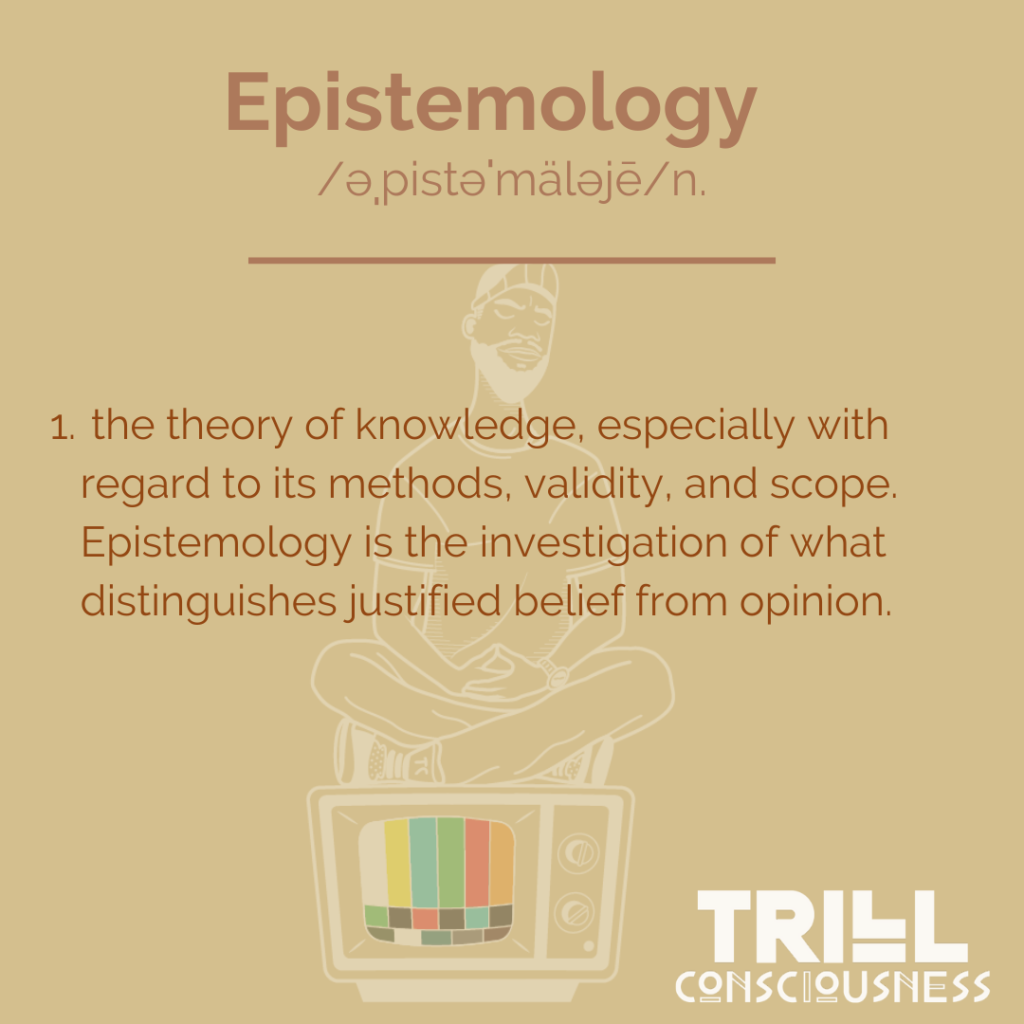Uncategorized
Epistemology
“Compared to what can be known about the universe, the knowledge of humankind is a drop in the ocean. Compared to the knowledge of humankind, what one person can know is also a drop in the ocean. Given our limitations, the most important question might be: What is worth knowing?”
James Clear
If Imma call myself kickin’ knowledge, it’s probably good to take it back to the foundation of what knowledge is. Epistemology is philosophical study of just that.
Most Philosophers agree that you can know “that”, i.e 1+1 =2, you can know how, i.e addition means to combine number a and number b to equal c, and you can know someone, like thats my potna.
In English, there’s not really a difference but most Romance language derivatives (French, Spanish, Portuguese) have a different word. In Spanish: Saber – to know like knowledge, conocer – to know like a person.
Now, what constitutes knowledge:
Belief: This is the idea of faith or trust in an idea, person, diety, etc… This includes both the truth and bullsh!t. Like no matter how much I believe I got hands for EJ, that’s probably not true.
Truth: You can believe something without it being true, but you absolutely can’t know something if it isn’t true. For example, when I bet the yo on the crap table, and I shake the dice and say ” I know it’s going to be an 11″ and it comes out a 3 (smh), I categorically did not know it, b/c it wasn’t true.
Justification: Do you have a good reason for your true belief. e.g. where is the evidence that this is true?
In the 60s people added one more component, that’s basically a nuance of justification where you could potentially have a true and justified belief, but it turn out that the justification in itself wasn’t enough. If you’re interested look up Gettier Problem.
I say all this to say, a lot of people be on the internet and they really don’t know sh!t. A person can be extremely intelligent and wise, or a complete buffoon and arrive at the same thing.
For this reason in my opinion, there’s no integrity in a person that gains a following or status as a guide and only tells you to question everything and study for yourself. This in and of itself is a great concept, however, I see people “research” things for themselves and come back with completely asinine conclusions.
If a person is espousing knowledge, they must tell you what they believe and why to have skin in the game and accountability.
For this reason, I am a pragmatist, and as a spiritual person, I also believe in innate knowledge. Pragmatism is basically the belief that knowledge should be practical or useful to be valuable. The belief in innate knowledge gets you around the regression problem. If you’ve ever meditated and had the universe talk to you, then the idea of innate knowledge is self evident.
Skeptics and other schools of thought don’t believe you can know anything because we perceive everything through our senses and our senses could be being controlled. (Think the matrix).

